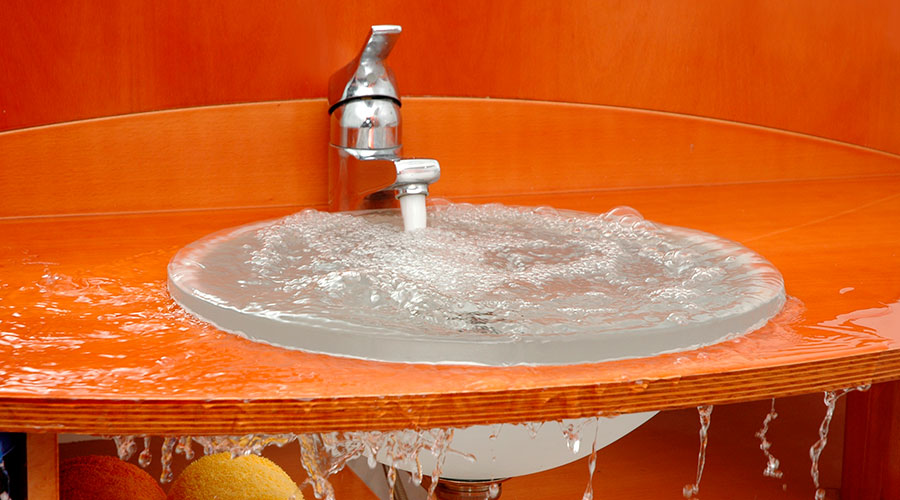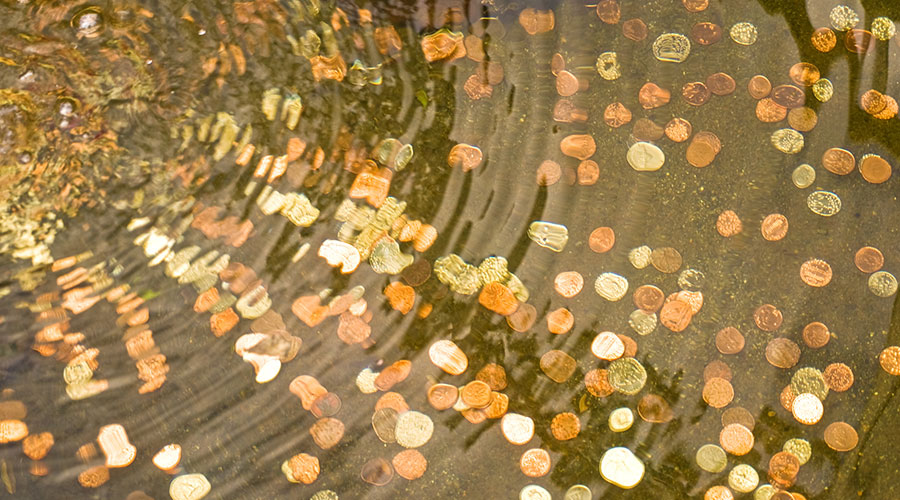Cape Town still a reminder of the preciousness of water – even in Edmonton
In 2018, Cape Town, South Africa faced
a crisis that’s unimaginable to most Canadians: the city was running out of water. Some 3.75 million people risked seeing their taps run dry. Disaster was averted, but the risk remains.
Here in Edmonton, 24/7 access to all the water we want often means less thought is given to what is literally the stuff of life, says
Jesse Skwaruk (
Water and Wastewater Technician ’13), a former water treatment plant operator and watershed technologist for
Epcor, the city’s water utility.
“Water is what we’re made of,” he says. “Without it we have nothing.”
As part of an effort to remind us of the role water plays in every aspect of our lives in Alberta, Skwaruk joined with a group of colleagues to organize World Water Day 2018 at NAIT. The free event – which featured speakers, exhibits and a reception – conincided with the United Nations’ annual
World Water Day. It's being held again
this year, with a fresh batch of
guest speakers.
Alberta isn’t likely to soon see a situation like Cape Town but that’s not to say it’s OK to let water gush down the drain while we brush our teeth. In a city with the luxury of a river running through it, we asked Skwaruk, now pursuing a doctorate in water management at the University of Waterloo, to debunk three water myths, and bring home the idea that this resource may be more finite than we think.
Myth 1: Water is abundant

There’s a lot of water in Alberta, Skwaruk acknowledges, but at the same time, “we have to realize that there are a lot of different stresses on our water resources.”
Municipalities, industry and agriculture are a part of those stresses, and each needs to be strategic about usage and stewardship, he adds. If improperly managed, fertilizer or animal waste can find their way to waterways, as can soil from land stripped of trees. The average canadian uses
251 litres a day. During the crisis in Cape Town, residents were restricted to 50.
“Quality is the other side of the coin,” he notes. Abundance can be undermined by pollutants. As part of his current studies, Skwaruk is investigating the impact of forest fires on our water supply. Ash, for example, makes its way to rivers, which in turn make their way to cities.
“If these waters are impacted by wildfire, you’re getting a lot of dirty material in there. How is that going to affect how water can be treated at water treatment plants?”
Myth 2: Water is free
 “Water is not free. Although taking it from nature doesn’t cost us anything, there are costs associated with treating water, quality control, the electricity to fuel the pumps to send that water to your home, says Skwaruk.
“Water is not free. Although taking it from nature doesn’t cost us anything, there are costs associated with treating water, quality control, the electricity to fuel the pumps to send that water to your home, says Skwaruk.
Originating in the Rocky Mountains, Edmonton’s water is treated more rigorously than bottled varieties,
according to Epcor, the city’s supplier.
Edmonton’s water is treated more rigorously than bottled varieties.
After being piped from the North Saskatchewan River, it spends seven to 15 hours being clarified and disinfected at two water plants with a combined daily capacity of 680 million litres. It’s carefully tested and piped to our homes once it passes.
In 2016, operating costs to treat and deliver water to Edmontonians reached nearly
$95 million.
Myth 3: One person can't make a difference
“It’s not a one-person job to manage water,” says Skwaruk. “It’s not up to the mayor or the environment minister. A collaborative, community management strategy is required. Everybody has a responsibility to manage water effectively.”
In Cape Town, that responsibility rested most clearly – and urgently – with residents.
Recommendations included two-minute showers, using grey water to flush toilets, limiting laundry to a load a week, handsanitizer over washing, and more.
Here in Canada, Skwaruk sees it as his job put his experiences and education to use in ensuring our access to water.
“I’ve travelled various places and seen how people don’t have access to water like we do. We’re very fortunate that we have this. With this knowledge that I have gained, it’s important that I do something about. I feel as if I have a responsibility to act upon that knowledge.”